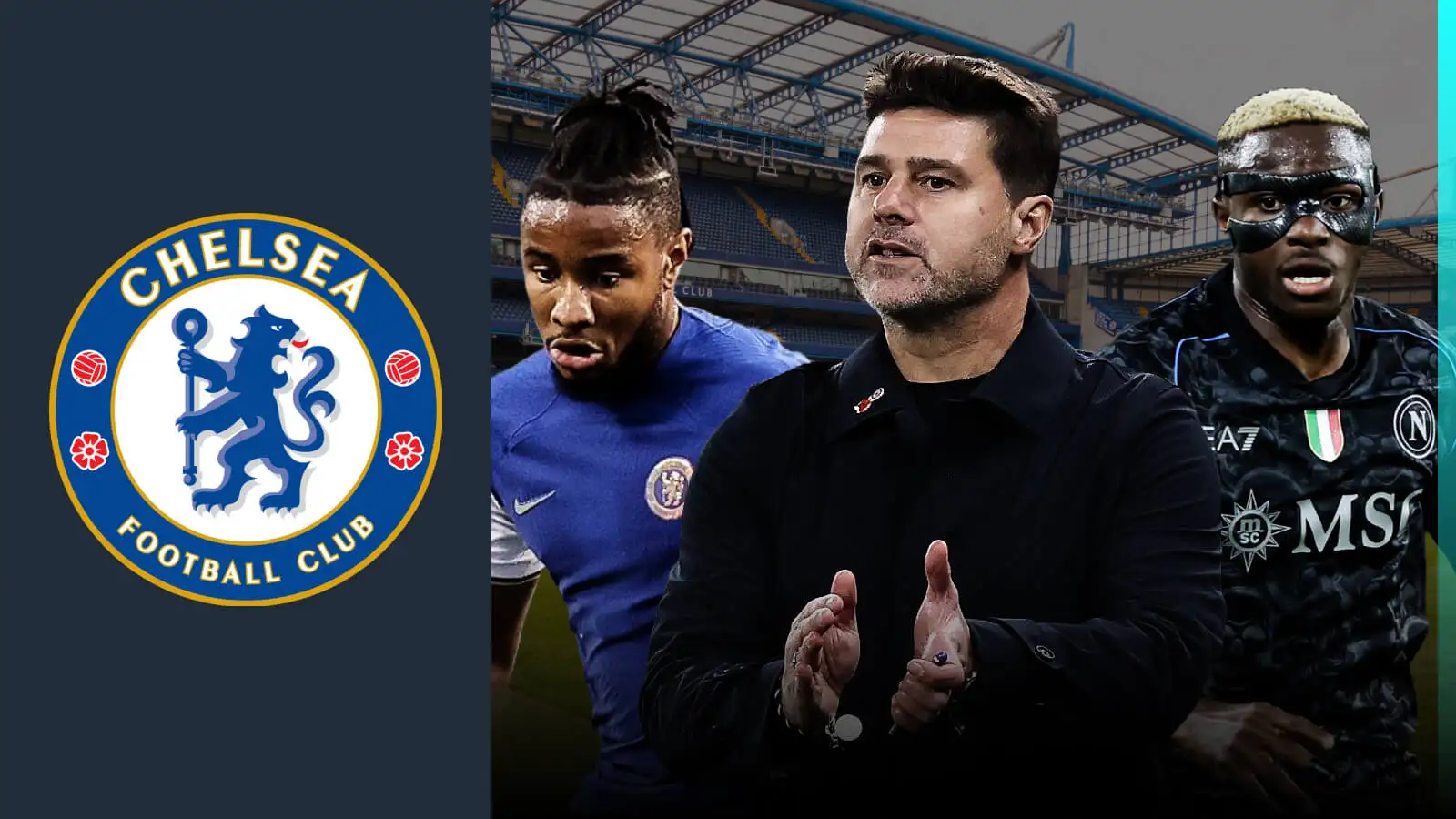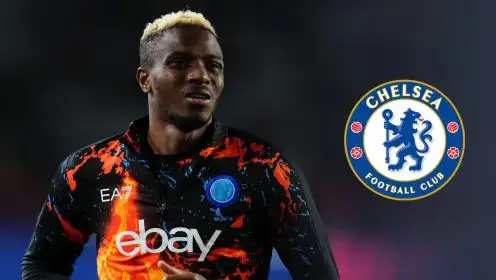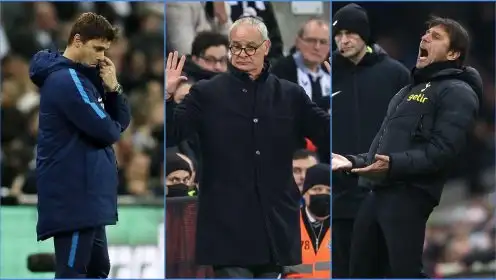Nkunku and Osimhen giving ‘perfect’ Pochettino Chelsea leeway he doesn’t deserve

Mauricio Pochettino was deemed the ‘perfect’ fit for Chelsea by pretty much everyone, mainly because of his ability to improve young players. Christopher Nkunku and Victor Osimhen won’t solve the problem of a lack of coaching.
‘Christopher Nkunku’ has been trending on social media this week – pictured in his training garb ahead of what could be his first taste of Premier League action against Sheffield United on Saturday – as Chelsea fans pin all of their goalscoring hopes on the £53m signing whose finishing has become legendary by virtue of him not playing. ‘You just wait until we get Nkunku back!’ etc etc.
‘Come to Chelsea’ posts directed at Victor Osimhen are also commonplace among Blues fans, who are currently putting up with ‘Premier League breaks’ between transfer windows, in the hope that the owners may stumble upon two or three smart signings to make the actual football tolerable.
But the narrative among both fans and pundits that Chelsea’s profligacy problem goes away with Nkunku in the team alongside Osimhen, or perhaps Ivan Toney, is currently giving Mauricio Pochettino more leeway than he deserves.
All we keep hearing about is how the inexperience of the squad is hampering their progress this season. But youth could also have brought exuberance and fearlessness to a squad managed by the guy almost everyone with a keyboard and a platform told us was the ‘perfect’ fit, given his work with burgeoning talent at Southampton and Tottenham, and the volume of untapped potential at Chelsea. We were no different.
In a parallel universe we could once again be testing the hypothesis that “you can’t win anything with kids”. And even given the foolishness of the people above him in the transfer market, and the injuries that have plagued the squad, would it not be less of a surprise for Pochettino to be leading this group of players in a title challenge, or at least a battle for the top four, than have them languishing in 12th?
To be under such scant pressure after five wins from 16 Premier League games with a squad that’s had £1bn spent on it in 18 months, and close to £500m in a summer in which Pochettino OK’d the deals, at a club that once sacked Carlo Ancelotti for finishing second a year after he won the double, is truly remarkable.
Pochettino owes a huge debt of gratitude to Erik ten Hag for avoiding talks of crises at Stamford Bridge, with Manchester United considered the basket case club of the season despite being eight points better off than Chelsea.
We were told Pochettino was hired in large part due to his ability to improve young players. So why is he having no notable impact on the aspect of the game Chelsea need to improve the most?
Chelsea currently have the third worst ‘non-penalty goals minus non-penalty expected goals’ in the Premier League. With a score of -5.6 they’ve essentially scored between five and six goals fewer than the quality of their chances suggests they should have. Only Brentford (-7.4) and Manchester United (-7.1) have a worse record.
Only six Chelsea players have positive scores: Raheem Sterling (+1.8); Carney Chukwuemeka (+0.9); Mykhaylo Mudryk (+0.8); Thiago Silva (+0.7); Armando Broja (+0.3); Axel Disasi (+0.2).
Unlike Graham Potter – who experienced a similar problem in his time at Chelsea – Pochettino doesn’t have the excuse of midweek European football and no pre-season. He’s had as much time as anyone could have hoped to coach his players to better convert chances.
Again, you’ve got to question the owners and so-called transfer experts at Chelsea for signing quite so many unnatural finishers. A midfield trio of Enzo Fernandez, Moises Caicedo and Conor Gallagher will need a lot of target practice, and the forwards very rarely look comfortable in goalscoring positions.
But it’s on Pochettino and his coaching staff to improve them. This job was never going to be purely about organising a team. As we keep being told, this is a ‘project’, which must have individual development at its heart so that the collective goals can be achieved.
It could be a case of coaching particular finishes (who knows the last time a Chelsea striker aimed and finished through a goalkeeper’s legs?), teaching them when and where to run to give them the best chance of scoring, or even mental exercises to slow heart rates when presented with opportunities. They may not be natural finishers, but unnatural finishers can score goals too.
Despite Pochettino’s adherence to the ‘project’ party line, he’s frequently talked about the impact of Nkunku’s absence on his side’s profligacy and said last week that the club again needs to open the chequebook in January, presumably to buy the striker everyone seems to be suggesting is a must-have.
He’s probably right: Chelsea’s finishing will likely improve with Nkunku and a new No.9. But accepting that the players he’s currently working with aren’t going to cut the mustard shouldn’t sit right with Chelsea fans, who were spun the yarn that their new manager was the best in the business when it comes to nurturing young talent. What’s the point of amortising children over a decade when after six months they’re deemed unworthy to wear the shirt?
And no matter how good Nkunku and Osimhen prove to be – they could be the volcanic water of natural finishers – if a chance falls to Fernandez, Jackson or any of the other unnatural guys, they will need Pochettino to have done the job he was brought to the club to do, and coach them to score goals.





